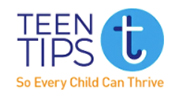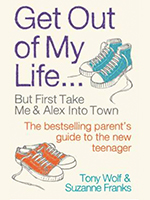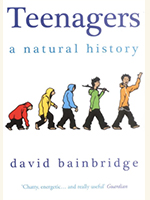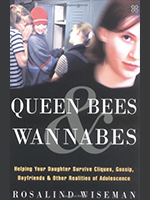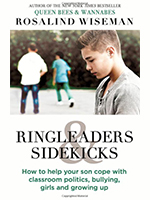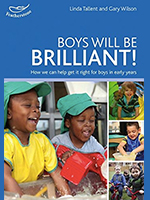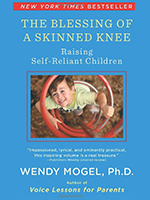We use cookies on our website and you can manage these via your browser setting at any time. See our Cookie Policy to learn more.
To review our Privacy Policy, including our obligations under the General Data Protection Regulation, please see our Privacy Policy
PARENTS: Please note that you should allow cookies in order to log into the Parent Area. Further information
If a manual existed that produced accurate outcomes for teenagers, then the authors would be very rich indeed. Plenty of books on teenagers exist but most are ultimately about guidance as opposed to problem-solving.
This page aims to present parents with suggested resources and ideas to help understand and interact with teenagers during this period of lockdown.
There are three key sources of information when seeking advice:
|
|
Housemasters and Housemistresses The Housemasters and Housemistresses are an obvious starting point and they have the advantage of an insight into a child’s behaviours and characteristics that may not be obvious at home. |
 |
Head of Pastoral The Head of Pastoral is a port of call if you want to discuss more general or theoretical ideas. |
 |
Alicia Drummond of Teen Tips The School works closely with Alicia Drummond of Teen Tips. Alicia has many years’ experience as a qualified counsellor and her talks to the Bryanston Parents Association (BPA) are incredibly popular. Alicia offers her top tips below: |





Teenagers adopt their thinking when they are open to expansion. If we consider our own lives we might remember the trends, the influencers, the peer groups and even teachers that introduced new ways of thinking. Parents played a huge part too both directly and indirectly i.e. through things that were said as well as all that was not said. Therefore, guiding teenagers is not just the preserve of parents although it might feel like that under lockdown.
Recommended course
| Complete Parenting Teens Course - learn more
An excellent course is provided by Teen Tips and is entitled “Complete Parenting Teens Course.” It is a series of modules with easy to access videos created by Alicia. If parents wish to take undertake this course then Bryanston has secured 100 places for parents. If you wish to access the course booking page please log in via the parent area. Once logged in you can access the course booking page via the 'Guiding Teenagers course' tile. |
Suggested Links, Reading and Websites
| Teen Tips - learn more
The Teen Tips website is a rapidly expanding source of knowledge and Alicia Drummond offers excellent advice from both a therapeutic and experiential background. This link takes you to the parents talks site but there are also links to podcasts and topical articles under the tab ‘podcasts and more’ |
Books
| Get Out of My Life… by Tony Wolf and Suzanne Franks - read here
This is an incredibly accessible, at times humorous, examination of all manifestations of teenage behaviour. Tough topics (school, divorce, the electronic world, sex, drugs and suicide) have their own chapters as well as recognisable behaviours and advice on how to tackle situations. |
|
|
Teenagers: A natural history by David Bainbridge - read here First published in 2009, this is still a very engaging and relevant book highlighting the positive aspects of being a teenager. David Bainbridge’s background is as a vet and there is certainly a strong scientific element to this book (neural pruning, hormonal changes) and this perhaps is its strength. Ultimately, Bainbridge’s argument is that the teenage changes are part of a carefully staged sequence of changes that facilitate the shift to self-aware adults. |
|
|
Queen Bees and Wannabes by Rosalind Wiseman - read here This fascinating look at the cliques, conversations and changes in girls during adolescence focusses predominantly on advice for mothers although it is compelling reading for anyone interacting with teenage girls. The information gathered is from an American context but so much resonates with experiences here. It is also a challenging book as each chapter includes a “check your baggage” section in which we contemplate our own backgrounds and biases. Although first published in 2001 it remains relevant today. |
|
|
|
Ringleaders & Sidekicks by Rosalind Wiseman - read here A follow up focusing on boys’ experiences and group dynamics is entitled ‘Ringleaders & Sidekicks’ and the boys’ voices are given page space here as well as superb observations of the space between what boys do and what they say or, more importantly, don’t say. |
|
Boys will be Brilliant by Linda Tallent & Gary Wilson - read here First published in 2016 this book tackles the issues of boys falling behind girls in academic (and other aspects of school life) performance. There is a wide range of ideas that can be used to support boys but there is a key message here of the language and ways in which we, as a society, approach our dealings with boys. Essentially, boys will be brilliant if we give them the chance to shine and the encouragement to do so. The impact of such support benefits girls too as their experiences in the classroom and at school also improve. |
|
|
The Blessing of a Skinned Knee by Wendy Mogel - read here This book generally receives outstanding reviews though there are always some on every review site that do not take to it. It is written as an application of Jewish principles but readers of any or no faith can extract important messages of key principles that families can adopt. It is a call to more family focussed life and engagement in order to raise self-reliant children. |


